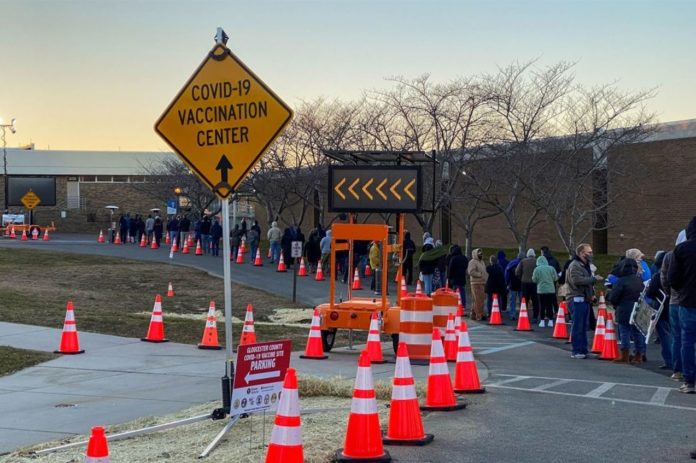The results confirm waning protection and suggest a third (booster) dose may be needed.
From 90 days after receiving a second shot of the Pfizer-BioNTech vaccine, a study published today in The BMJ shows a steady increase in the risk of covid-19 infection.
The research was conducted by Israel’s Research Institute of Leumit Health Services. In December 2020, Israel became one of the first countries to launch a large-scale covid-19 vaccine campaign, however, infections have resurfaced since June 2021.
The data demonstrate that the Pfizer-BioNTech vaccine provides great protection in the weeks following vaccination, but they also suggest that for some people, protection diminishes with time.
Covid-19 immunization programs on a broad scale are helping to curb the virus’s spread around the world, but even in nations with high vaccination rates, breakthrough infections can occur, which scientists believe is related to a progressive loss of immunity over time.
Examining the length of time following vaccination and the risk of infection could help determine whether a third injection is necessary and when it should be given.
A total of 80,057 adults (mean age 44 years) who had a PCR test performed at least three weeks after their second injection and had no prior indication of covid-19 infection were studied by the researchers.
A total of 7,973 people (or 9.6 percent) out of the 80,057 who were tested had a positive result. Negative controls of the same age and ethnicity were then matched to the positive samples.
Time elapsed since the second dose, the rate of positive results increased. For example, 1.3 percent of subjects tested positive 21-89 days after receiving a second injection across all age categories, but this increased to 2.4 percent after 90-119 days, 4.6 percent after 120-149 days, 10.3 percent after 150-179 days, and 15.5 percent after 180 days or more.
After accounting for other possible influencing factors, the researchers discovered that the time since the second shot was associated with a considerably increased risk of infection.
Compared to the initial 90 days following a second dose, the probability of infection was 2.37-fold higher after 90-119 days, 2.66-fold higher after 120-149 days, 2.82-fold higher after 150-179 days, and 2.82-fold higher after 180 days or longer.
Their findings can only be interpreted in light of the observational design, and the researchers admit that other factors, such as household size, population density or virus type may have played a role in the findings as well.
However, since this was a large trial including a large number of participants who received the same vaccine, and the researchers were able to conduct comprehensive analysis of the data, the results appear to be solid.
As a result, they conclude that in people who received two doses of the Pfizer-BioNTech vaccine, protection appeared to wane over time, and the probability of developing a breakthrough infection increased gradually in comparison to the initial 90 days of protection.
According to the researchers, the findings suggest that a third vaccine dose may be necessary.
Source: 10.1136/bmj-2021-067873
Image Credit: iStock
You were reading: Pfizer-BioNTech vaccine: COVID protection begins waning after 90 days of second dose
